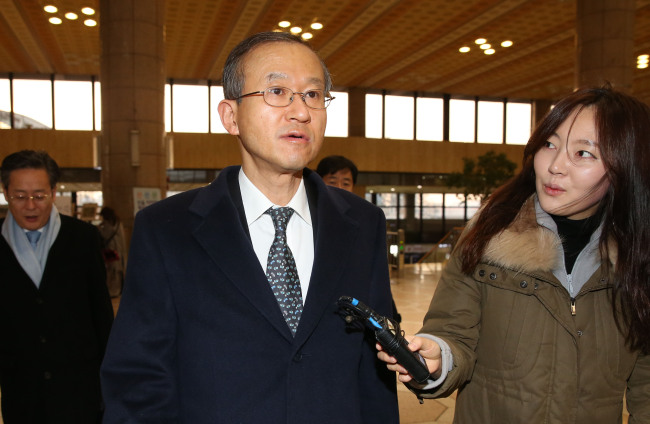The vice ministers of South Korea, the U.S. and Japan agreed Saturday to push for a more “thorough and comprehensive” response over North Korea’s fourth nuclear test, calling on China to demonstrate its leadership and join their initiative.
Seoul’s Vice Minister Lim Sung-nam gathered in Tokyo with U.S. Deputy Secretary of State Antony Blinken and Japanese Vice Foreign Minister Akitaka Saiki as the three countries are ramping up efforts to rally the international community behind a new round of strong sanctions in punishment for the underground explosion.
“We have agreed to respond to the latest atomic test in a more thorough and comprehensive fashion,” Lim said at a news conference after the talks.
“We reached a consensus that we will deliver a strong and clear message by taking substantial steps with a sense of urgency, based on the perception that the international community will pay a much greater price in the future unless it acts now to resolve the North Korean nuclear issue.”
Lim’s three-day trip came as the U.N. Security Council is working on a resolution in response to the Jan. 6 underground blast for which Pyongyang claimed to have used a hydrogen bomb.
 |
| Seoul’s Vice Minister Lim Sung-nam arrives for talks with U.S. and Japanese counterparts in Tokyo on Saturday. Yonhap |
It also marks the three nations’ second vice-ministerial talks, following the first round in Washington last April and Lim’s first participation since taking the post two months ago. On its sidelines, the diplomats held separate bilateral talks and discussed steps that the three countries may be able to take independently aside from the UNSC bans.
With Beijing exerting veto power at the council and major clout over its wayward neighbor, Blinken called for its support for “imposing costs” for Pyongyang’s flaunting of international obligations
“All of us at the Security Council are on record as being determined to take significant measures and we look to China to join in that effort,” he said.
“It’s our expectation, along with our colleagues from Japan and the Republic of Korea, that China will demonstrate leadership at the Security Council with us in ensuring that there are significant consequences for North Korea’s actions.”
The U.S. is forecast to press the case once again when Blinken and U.S. Secretary of State John Kerry travel to Beijing later this week and on Jan. 27, respectively. The deputy secretary is also scheduled to touch down in Seoul on Tuesday for a two-day stay.
In New York, the sanctions diplomacy will likely pick up the pace this week, though a draft resolution has yet to be circulated among UNSC countries for a review, a senior South Korean diplomat told reporters in Tokyo. Shin Dong-ik, deputy minister for multilateral and global affairs at Seoul’s Foreign Ministry, is scheduled to visit the city for three days from Monday and meet with the representatives of the U.S., China, Japan and other members.
“You may get to see some movement at the U.N. this week,” the official said on customary condition of anonymity. “Tactically China would take more time, and given (the resistance of) China and Russia, even the draft resolution cannot give 100 percent satisfaction.”
Saiki, for his part, emphasized the significance of greater cooperation between the three countries during the news conference, especially after Seoul and Tokyo reached a compromise on the long-standing issue of Japan’s wartime sex slavery late last month.
Blinken also praised the settlement as a “very important gesture of healing and reconciliation,” expressing hopes for “even stronger and constructive” relations between the top two U.S. regional allies.
“Greater-than-ever cooperation between the three nations is being required in order to send a strong message to North Korea and stave off further provocations,” Saiki said.
As the public furor continues over some Japanese officials and politicians undermining the agreement and defaming the “comfort women,” Lim stressed the need for Tokyo to “unswervingly” follow through on the deal and make efforts to help the victims regain honor and heal their wounds during his one-on-one meeting with Saiki, Seoul’s Foreign Ministry said in a statement.
By Shin Hyon-hee (heeshin@heraldcorp.com)

